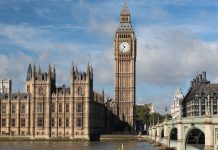In 2020, the coronavirus pandemic took the global travel industry from all-time highs to a low of only five per cent of expected volumes overnight. Over the last two years, the industry has seen that the road to recovery is not linear. Border closures, vaccine shortages, new variants (Delta, Omicron) and now, Russia’s invasion of Ukraine all have immediate effects on travel. By the end of 2021, the global travel industry recovered more than 50 per cent of its gross activity, and if recovery continues along the same trajectory, 85 per cent of the travel industry’s gross activity could be regained by the end of 2022.
Recently, Travelport commissioned a study of thousands of people across seven countries, and the results were overwhelming. Perhaps not surprising given the last two years, but what we heard, loud and clear, is that that travel is back.
People are so excited to travel, they’re willing to give up some of their favourite things for six months or longer in order to do so:
-
71 per cent of respondents would forgo concerts
-
64 per cent would stop buying new clothes
-
63 per cent would give up spa treatments
-
60 per cent would skip the cinema
-
53 per cent would give up playing sports
-
36 per cent would stop dining at restaurants
However, not every aspect of the travel experience is all sunshine and umbrella drinks. There is a notable experience gap between the high degree of enjoyment respondents felt from going on holiday and the frustration they experienced when booking that very same trip. For example, in the US (the largest travel region) 43 per cent of respondents said they don’t find booking travel enjoyable. However, 95 per cent of that same group enjoy actually being on holiday.
Globally, travel was ranked as the number one most enjoyable activity, which again, is hardly a surprise, but it dropped to the number four spot when it came to shopping for travel. And this is not just a generational issue. A quarter of Gen Z respondents agreed that searching and booking travel is a necessary evil for a change of scenery.
On average, travellers visit a whopping 38 different websites before booking their trip. Put this in the context of the old adage that a consumer visits a website an average of five times before making a purchase. Other industries have steamed ahead in terms of digital retailing simplicity and innovation, evolving with their consumers’ sophisticated expectations, and shifting perceptions over time. Study respondents found the travel industry to be an outlier, perceiving it to be even less innovative than the finance industry. Ouch.
Shopping for travel is complicated, which is why Travelport has made simplifying the complex travel ecosystem its mission. In order to be successful at this, we believe:
-
Convenience is crucial: People want a travel shopping experience where they can search and book everything in one place.
-
45 per cent of respondents would prefer to book an entire trip through one website, one that offers choice of airlines, hotels, car hire companies, and extras.
-
Choice beats price: Customers do not necessarily want the cheapest option. They want the best option for their needs. And, in order to select the best option, they want to see everything on offer.
-
Only 13 per cent would book the cheapest option if it meant limiting their choice.
























